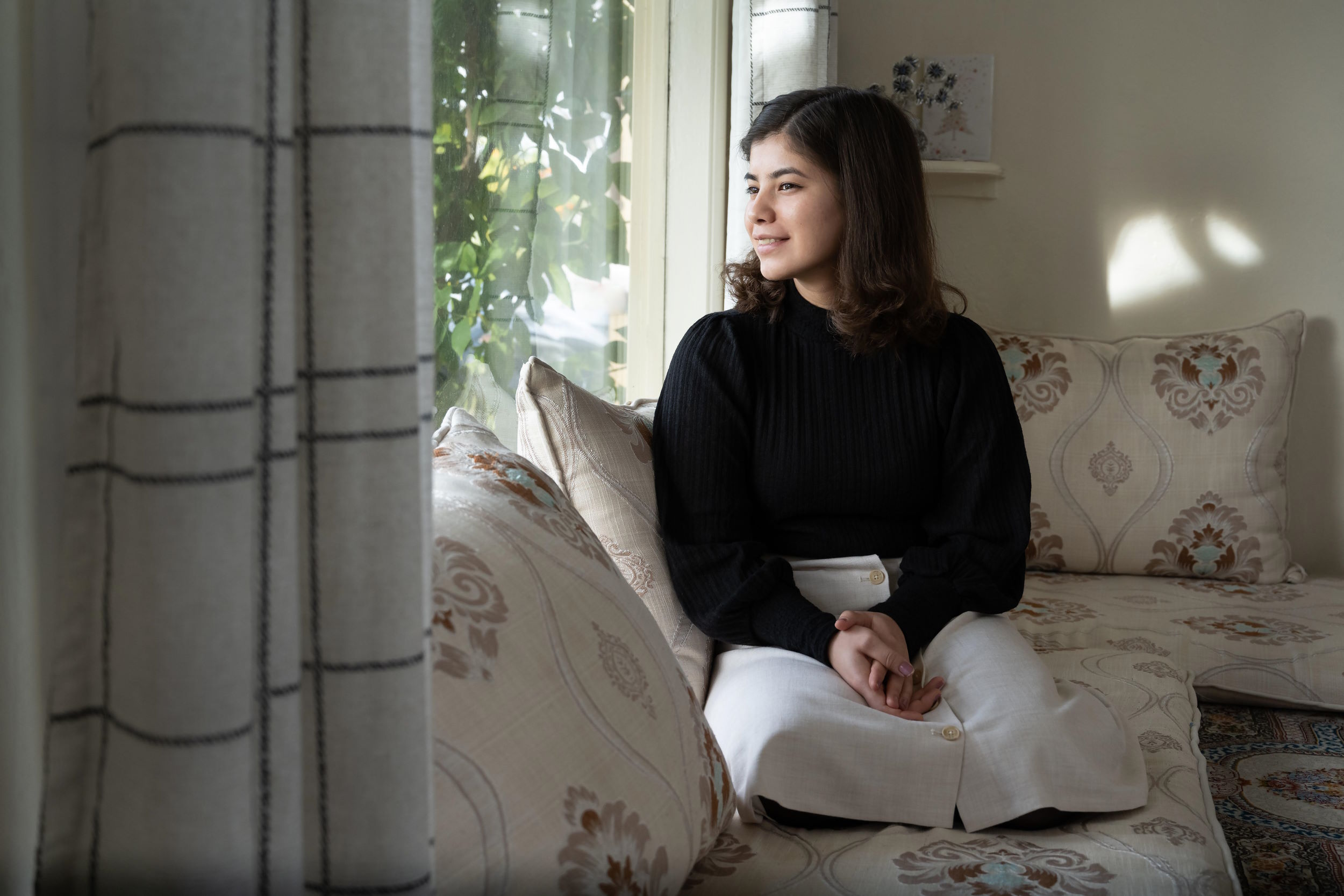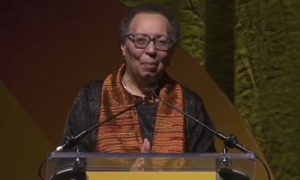Zahra was sitting in class at her New Jersey boarding school when she heard a loud noise and immediately sought cover from what she believed to be an explosion.
“When I stood up and I was looking around, everyone was just busy with their work and they didn’t notice what’s going on,” says Zahra, who moved to the U.S. from Afghanistan in January 2022 at age 19. Youth Today is identifying her by her first name only due to her safety concerns for family members in Afghanistan.
While her classmates and teacher at the Hun School of Princeton, New Jersey, an all-gender private day and boarding school, continued as if nothing had happened, Zahra was reeling from the trauma of her past.
She cried, remembering the bombings and the war, the Taliban taking over her country and forcing girls out of school and women out of work. Although Hun had an international student body with pupils from across the U.S. and 22 countries, most of Zahra’s classmates had no idea what life had been like for her and others in Afghanistan.
“That was the hardest day … and I noticed that our life is so much different,” said Zahra, now 21.
She began to think about how she could help students, specifically girls, back in Afghanistan. So she partnered with two friends, and together, they created a four-week online English language class for girls in Afghanistan that started in June 2022. They put out an online survey and were surprised by the response: more than 200 girls and women showed interest.
[Related: Afghan teen leads family into new life in America]
Learning English is a way for girls and women in Afghanistan to have a chance at a better life, Zahra said.
“English will help them a lot to get to where they want” in their studies, work and opportunities outside Afghanistan, she said. “English makes a lot of things easier for them.”
When Zahra’s teacher and dorm parent, Seth Holm, heard about the girls’ initiative, he jumped in to help, even though he had never taught English as a second language.
“I’m actually a Latin teacher, but I thought we’ll give it a try,” said Holm, who is also the chair of the modern languages and classics department at the school. “We just — baby step by baby step — put the thing together.”
By the third week, everyone agreed the course should continue, and it has, growing from about 18 learners to dozens. In addition to the weekly virtual class, which Holm teaches on Thursday nights from 9:30 p.m. to 1 a.m. Eastern Time, there is a study buddy program, a one-on-one tutoring program and a new collaboration with the nonprofit Afghan Girls Financial Assistance Fund. The girls and women range in age from 13 to 32, Holm said.
Zahra is now a freshman at a university in Ohio where she wants to study science. She remains involved with the remote learning program as a mentor to one of the students who is herself an English teacher in Afghanistan.
Although Zahra is free to pursue higher education in the U.S., she said she was surprised to discover that gender discrimination is still pervasive. For example, she was advised not to stay at the university library alone late at night due to safety concerns.
“Back in Afghanistan, I was thinking that when I go to the U.S. or a Western country, there would not be any limitation for me,” she said. “But … we have it here.”
For Holm and Zahra, teaching English is a way to help students back in Afghanistan.
“That was an important conversation we had, when I was asking her the value of what we’re doing,” Holm said. “If we can’t get most of these girls, or maybe even any of them, out of Afghanistan, she said, teaching them English gives them access to the world.”
***
Kristi Eaton is a Tulsa-based journalist.






























